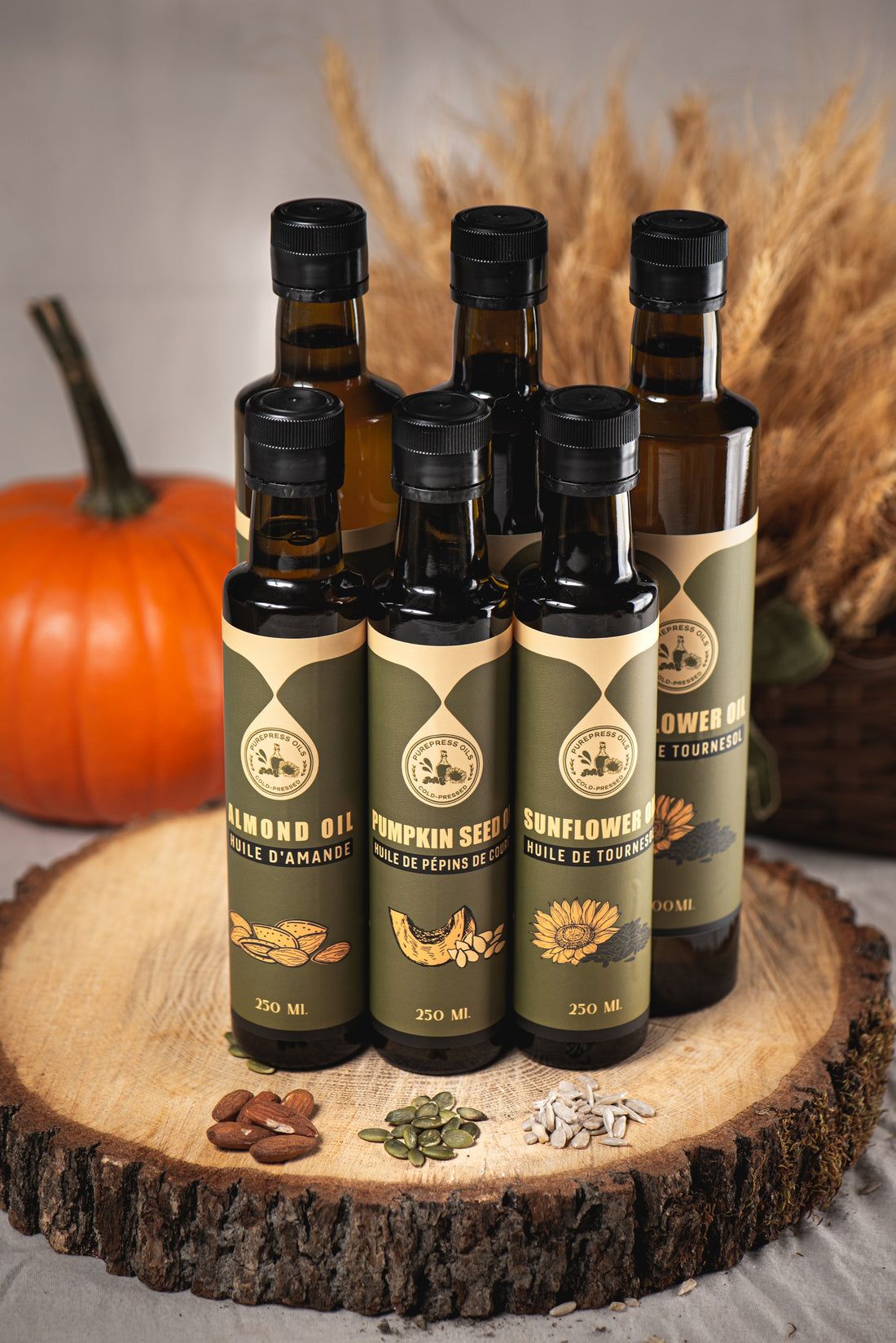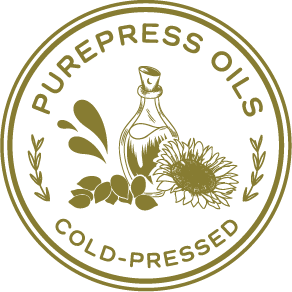
Top 4 Cold-Pressed Oil Myths and Facts: What You Need to Know
Olesya OdasShare
Cold-pressed oils have been celebrated for their purity, natural flavors, and health benefits. But as with any popular product, misconceptions and myths can arise. From storage myths to misunderstandings about shelf life, let’s clarify some of the most common misconceptions with science-backed facts.
1. Myth: Cold-Pressed Oils Have a Short Shelf Life
Fact: Properly stored, cold-pressed oils can last longer than you might think.
Many believe that because cold-pressed oils are minimally processed, they spoil quickly. While it’s true that they lack preservatives, proper storage can extend their life. Keeping oils in a cool, dark place and tightly sealing the bottle can preserve them for 6–12 months, depending on the type. Oils high in polyunsaturated fats, like sunflower oil, can last even longer if stored properly. Refrigerating certain oils can also prevent oxidation, slowing down the process that leads to rancidity.
2. Myth: Cold-Pressed Oils Lose Their Nutritional Value When Heated
Fact: Cold-pressed oils retain many nutrients even when used for cooking at moderate temperatures.
While it's true that extreme heat can reduce some nutrient levels, many cold-pressed oils are stable at moderate cooking temperatures. For example, pumpkin seed oil and almond oil can be heated gently without significant nutrient loss, making them great for light sautéing or finishing dishes. However, each oil has a different smoke point, so using them below this temperature ensures you enjoy both the health benefits and flavor.
3. Myth: Cold-Pressed Oils Must Be Stored in Glass Bottles Only
Fact: Glass is ideal, but high-quality food-grade plastic also preserves oil quality.
Glass bottles are often preferred for cold-pressed oils, as they are inert and don’t leach any substances. However, high-quality, dark-colored, food-grade plastic containers can also protect oils from light and air, which can extend shelf life and preserve quality. The main priority is a dark, airtight container stored in a cool environment to reduce exposure to light and heat.
4. Myth: Cold-Pressed Oils Are Only for Drizzling and Finishing Dishes
Fact: While great for drizzling, cold-pressed oils can also be used in cooking and baking.
Cold-pressed oils add unique flavors to raw dishes, dressings, and finishing touches, but they are also versatile enough for baking and moderate-heat cooking. Almond oil, for example, brings a delicate flavor to baked goods, while pumpkin seed oil can add depth to roasted vegetables. Using cold-pressed oils in various culinary applications allows you to benefit from their nutrients and flavors across multiple dishes.
Conclusion:
By understanding the truth behind these common myths, you can better appreciate the value of cold-pressed oils and feel confident in incorporating them into your lifestyle. Whether you're looking for unique flavors or specific health benefits, knowing how to store, cook, and select oils helps you make the most of these high-quality products.
